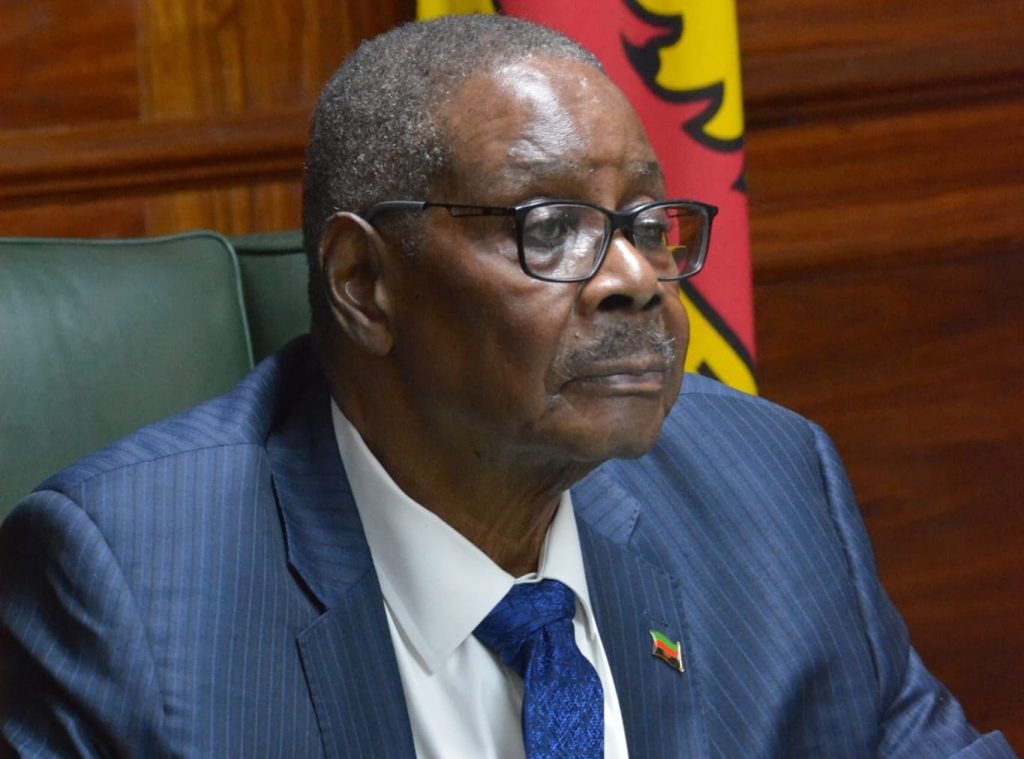Mutharika Finally Admits Malawi Is Unready for Planting Season as Fertiliser Crisis Deepens
President Peter Mutharika has publicly conceded that his government has failed to prepare the country for the 2025/26 planting season, admitting that Malawi is heading into the rains without adequate fertiliser and with procurement dangerously behind schedule.

The President made the confession at Mtunthama State Lodge during a high-stakes meeting with IMF Africa Department director Abebe Aemro Selassie — a meeting that laid bare just how fragile the economy has become.
“We are struggling with supplies… we are not yet ready in terms of fertiliser,” Mutharika openly told the IMF delegation, acknowledging what farmers, experts and civil society have been warning for months.
The admission marks one of the clearest indicators yet that the administration is overwhelmed by a cocktail of crises: late procurement of inputs, a suffocating foreign exchange shortage, unstable fuel supplies and rising debt repayments eating into essential imports.
Although government launched the Farm Inputs Subsidy Programme (Fisp) two weeks ago, only 30 000 metric tonnes of inputs — largely procured from Zambia — have arrived, according to Agriculture Minister Roza Mbilizi. National demand stands at 110 000 MT, and the ministry cannot say when the remaining 80 000 MT will be secured.
For a country whose planting calendar is already closing in, the uncertainty threatens yields, food security and economic stability.
Government Pleads for Help
Facing the IMF, Mutharika painted a bleak picture: fuel queues returning “after a week,” industry disruptions, and a debt burden so heavy that it has swallowed the little fiscal space the Treasury once had.
“We are heavily indebted, both to private and official institutions… we have to restructure,” the President said, a rare admission that the government can no longer meet its obligations without external rescue.
A Broken Economy Exposed
IMF envoy Selassie did not sugar-coat the situation. He confirmed that Malawi’s economic pressures are severe and getting worse:
“The government has inherited a very difficult economy… imbalances are elevated, foreign exchange shortages are significant and inflation is high,” he said, stressing that the Fund sees the situation as urgent enough to warrant accelerated support.
Two IMF missions have already been in Malawi in recent weeks, and more are expected as pressure mounts to prevent a full-scale economic collapse.
Foreign Exchange Crisis at the Centre
Finance Minister Joseph Mwanamvekha, who called the talks “very successful,” admitted that Malawi’s immediate problem is simple but devastating: it has no money to import what the country needs.
“If we get foreign exchange, our problems are sorted out. Everything revolves around foreign exchange,” he said.
The minister said the government is enforcing austerity — cutting expenditure, freezing recruitment, tightening travel, and intensifying tax collection — measures he insists are “not cosmetic work.”
But with fertiliser missing, fuel unstable, and debt piling up, the administration is now openly depending on the IMF to prevent further deterioration.
The IMF is expected to meet development partners this week in an effort to mobilise emergency support for food, fertiliser, forex and fuel. Mwanamvekha also plans extensive engagements with Parliament and the media as negotiations intensify.
Both sides say technical discussions will continue this week, with hopes of striking a deal that can ease immediate import pressures and stabilise the economy.
But the bigger story is this: for the first time, President Mutharika has publicly admitted that Malawi is facing a planting season — and an economic year — for which his government is dangerously unprepared.
Follow and Subscribe Nyasa TV :
